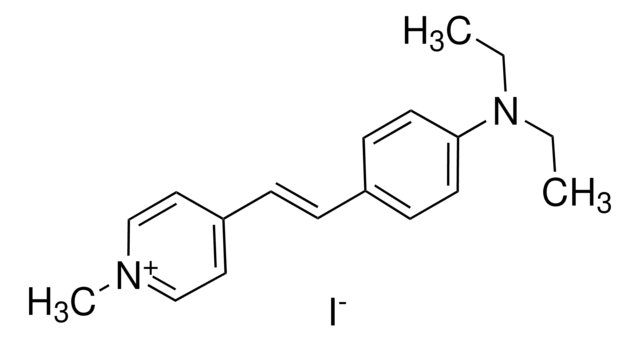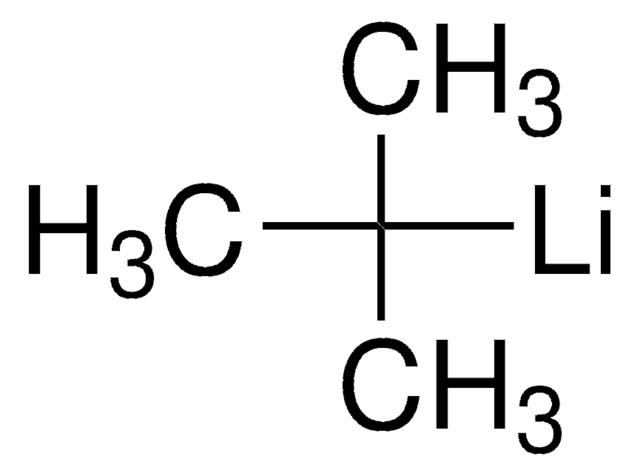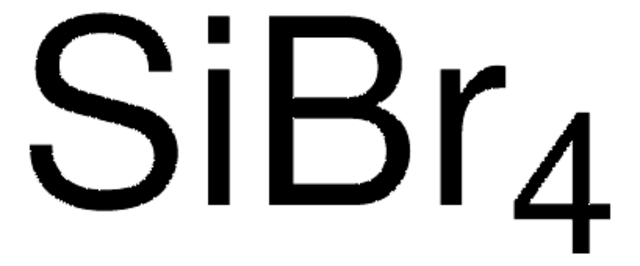336408
trans-4-[4-(Dimethylamino)styryl]-1-methylpyridinium iodide
Dye content 98 %
Synonym(s):
(E )-4-[4-(Dimethylamino)styryl]-1-methylpyridinium iodide, Pyridinium, 4-[2-[4-(dimethylamino)phenyl]ethenyl]-1-methyl-, iodide,
About This Item
Recommended Products
composition
Dye content, 98%
mp
254-256 °C (lit.)
λmax
475 nm
SMILES string
[I-].[H]\C(=C(\[H])c1cc[n+](C)cc1)c2ccc(cc2)N(C)C
InChI
1S/C16H19N2.HI/c1-17(2)16-8-6-14(7-9-16)4-5-15-10-12-18(3)13-11-15;/h4-13H,1-3H3;1H/q+1;/p-1
InChI key
UJNFDSOJKNOBIA-UHFFFAOYSA-M
Related Categories
General description
Application
Storage Class Code
11 - Combustible Solids
WGK
WGK 3
Personal Protective Equipment
Certificates of Analysis (COA)
Search for Certificates of Analysis (COA) by entering the products Lot/Batch Number. Lot and Batch Numbers can be found on a product’s label following the words ‘Lot’ or ‘Batch’.
Already Own This Product?
Find documentation for the products that you have recently purchased in the Document Library.
Customers Also Viewed
Our team of scientists has experience in all areas of research including Life Science, Material Science, Chemical Synthesis, Chromatography, Analytical and many others.
Contact Technical Service
![4-[4-(Dimethylamino)styryl]pyridine 95%](/deepweb/assets/sigmaaldrich/product/structures/225/605/ad18cc93-9d43-467b-8618-105948f9692b/640/ad18cc93-9d43-467b-8618-105948f9692b.png)


![TRANS-4-[4-(DIBUTYLAMINO)STYRYL]-1-METHYLPYRIDINIUM IODIDE AldrichCPR](/deepweb/assets/sigmaaldrich/product/structures/316/860/49e4e927-ce25-4d51-b402-f30f828fdd24/640/49e4e927-ce25-4d51-b402-f30f828fdd24.png)









